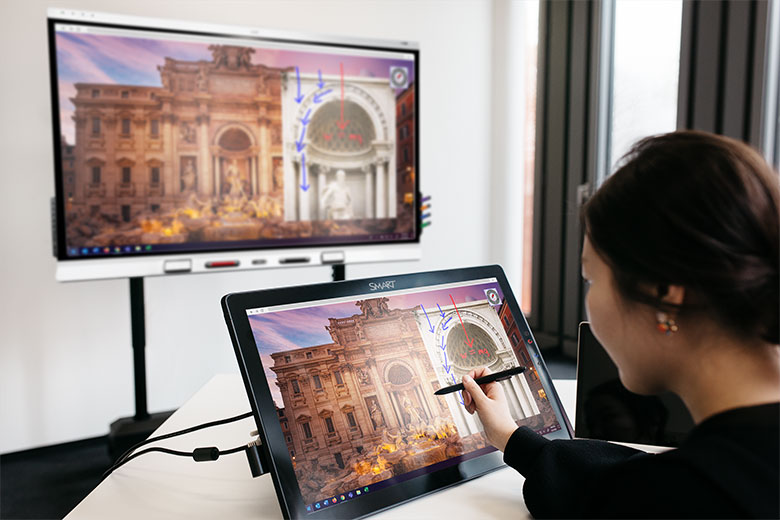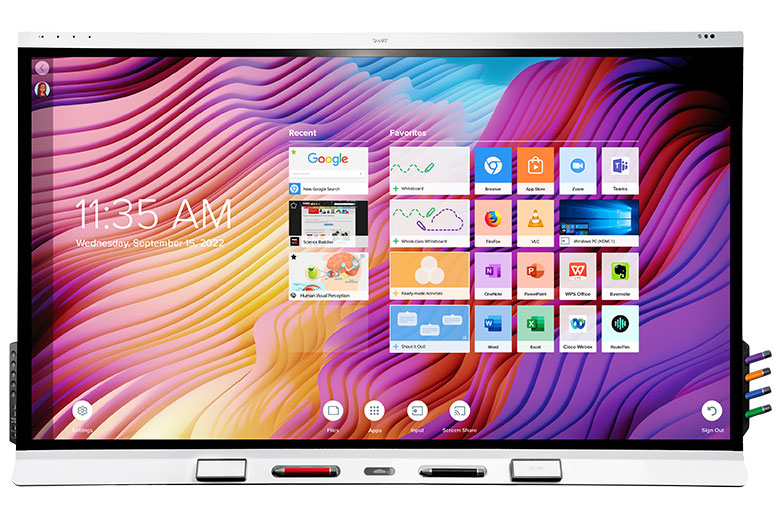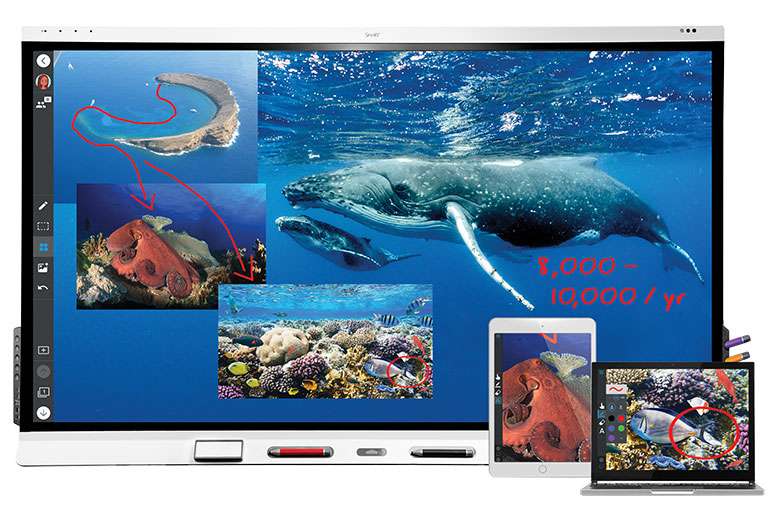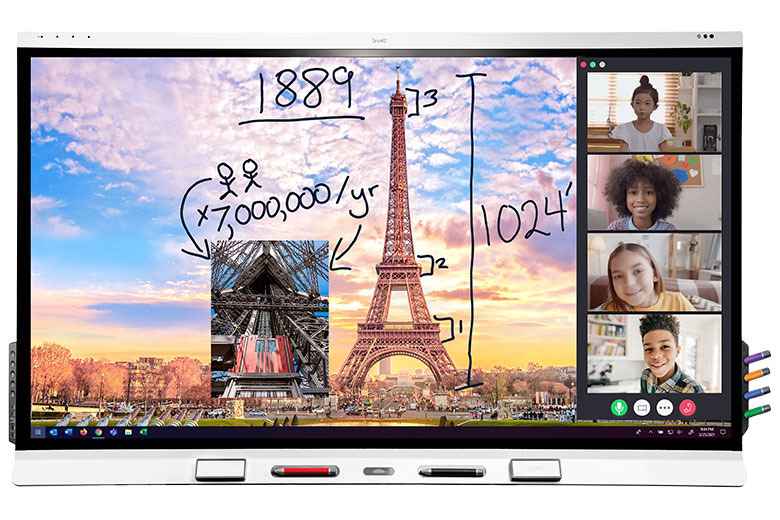Connections matter. We study, work, and parent better when we have good connections, and our community grows stronger and healthier with each new connection. That is why award-winning SMART Technologies is committed to creating solutios that empower and engage, providing interactive technology that makes students’ and teachers’ lives simpler and more connected. So, when Education UAE had the opportunity to sit down with Ruben Cammaerts (Vice President, International Sales) and Aaron Fright (Regional Director – Middle East), we thought it was too good to miss. We began by asking, is technology a boon or bane for education?
Ruben Cammaerts: Having been in the industry for over 35 years, and with over 60 million leaders, teachers, and students engaging with SMART from all over the world, it’s been part of our remit to undertake quite a lot of research on that very subject.
People expect that with the billions of dollars spent on technology and education, the learning outcomes should improve significantly. However, this is not what we see. What we do see are pockets of success and some marginal gains. Where technology is implemented well, we do see a lot of success – results that improve significantly thanks to technology.
“It’s never technology just for the sake of technology; you can almost guarantee that would have no significant impact”
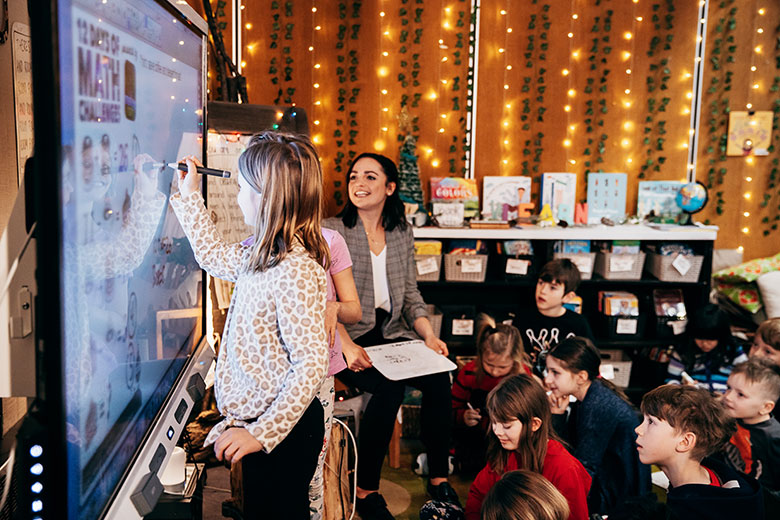
But it’s never technology just for the sake of technology; you can almost guarantee that would have no major impact. What you need is a mission and a vision, and to know where you want to go, what success looks like, and what your KPIs are. These are critical to achieving success. Technology on its own is not the answer.
At SMART, we have something that we call our ‘formula for success’, which is actually quite simple: It starts with the leadership and a vision, looking at teaching practices, what is trying to be achieved, and so on. Only then can you start considering the technology, and how realistic it is for a teacher to use it on a day-to-day basis. Software is therefore the second thing. Then you can start to look at the hardware because by this time you know what you want to achieve. But the most critical thing is professional development. How can schools ensure that teachers feel comfortable with the technology, and how can they overcome that resistance to change that we all have? And that’s what we call our formula for success – if you follow these steps, we can almost guarantee a successful outcome.
“The most critical thing is professional development”
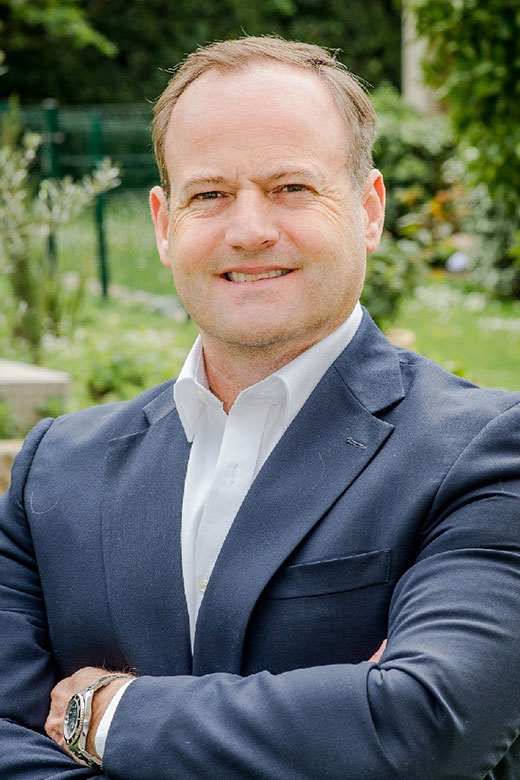
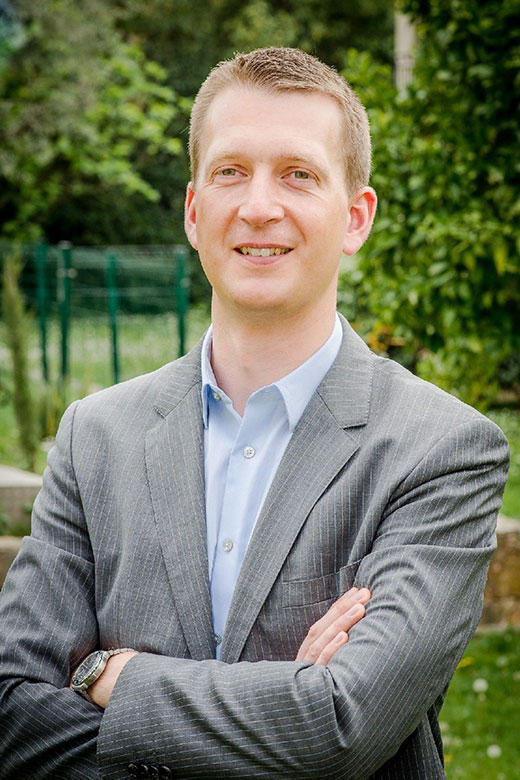
Over
60 million
teachers, students, and leaders engage with SMART all over the world.
Over
3.5 million
SMART displays shipped globally with the support of our partners.
Over
35 years
of innovation since inventing the original SMART Board® in 1987.
EdUAE: What is working well in education right now?
Aaron Fright: We actually have some excellent examples. What we’ve been doing for the last year is documenting success stories we have come across all over the world. And we’ve put these on our website, which we hope will inspire people. We listen and we learn, and then we take examples of success for other educators to use and take advantage of.
RC: We spend a lot of time in consultative conversations and have discovered that where technology is working well it’s because schools have made the right decisions; it’s been a collective decision, with all key stakeholders involved, not just the IT department or the Principal, no matter how good their vision may be.
EdUAE: What is the changing role of the teacher and how do we support that new role?
AF: I think based on what we see; teacher burnout, time management, and not enough time for professional development are big issues. It’s a bit of a pressure cooker situation for teachers because they need to deliver.
“Parents want to be more actively involved in terms of what the school is offering and how the school is connecting with the parent community”
We don’t believe that technology is going to replace the teacher, absolutely not. But if you look at what’s happening with the future of education, where schools, for example, are allowing students to create their own learning schedules, the teacher becomes more of a facilitator, a mentor. And with the right technology used in the right way, and with the right teaching practices, the skills and development of students can be accelerated dramatically. So, I wouldn’t say the teacher’s role is changing, but I would say the pressure on the teacher means that we need to accommodate new ways of teaching.
“It’s never technology just for the sake of technology; you can almost guarantee that would have no significant impact”
EdUAE: Is it important to involve parents in Edtech planning?
AF: Critical, 100%. We have this Edtech assessment tool where stakeholders in the education world take surveys, and one of the biggest things we’ve discovered from our base of around 6,500 schools is that post-Covid there is a big appetite for understanding where things are going extremely well and to maintain that, and where things are going not quite so well and improve it.
This is particularly true in the UAE where there is a big private school environment. Parents want to be more actively involved in terms of what the school is offering and how the school is connecting with the parent community.
RC: Learning doesn’t stop when the bell rings, it continues, and the more the environment at home or in the community aligns or contributes to that, the quicker young people will learn. So yes, parental involvement is one of the most critical things.
EdUAE: Finally, how do you see the future of education?
AF: Before Covid, we would have conversations with ministries and ask them what they were trying to achieve, and they would say “21st-century learning.” We would reply, “Great, how are you going to deliver that? What does that look like? How are you going to measure success?”
They couldn’t articulate their responses because they didn’t have a holistic, cohesive plan. But since Covid, when we had something like two billion students not going to school, there’s now an acknowledgment that things have to change.
This is particularly exciting in the UAE because it’s such an innovative, out-of-the-box environment. People like it here because they can be creative; they can make change and create impact.
RC: The future is about taking the success stories and rolling them out, and it is starting to happen.
















